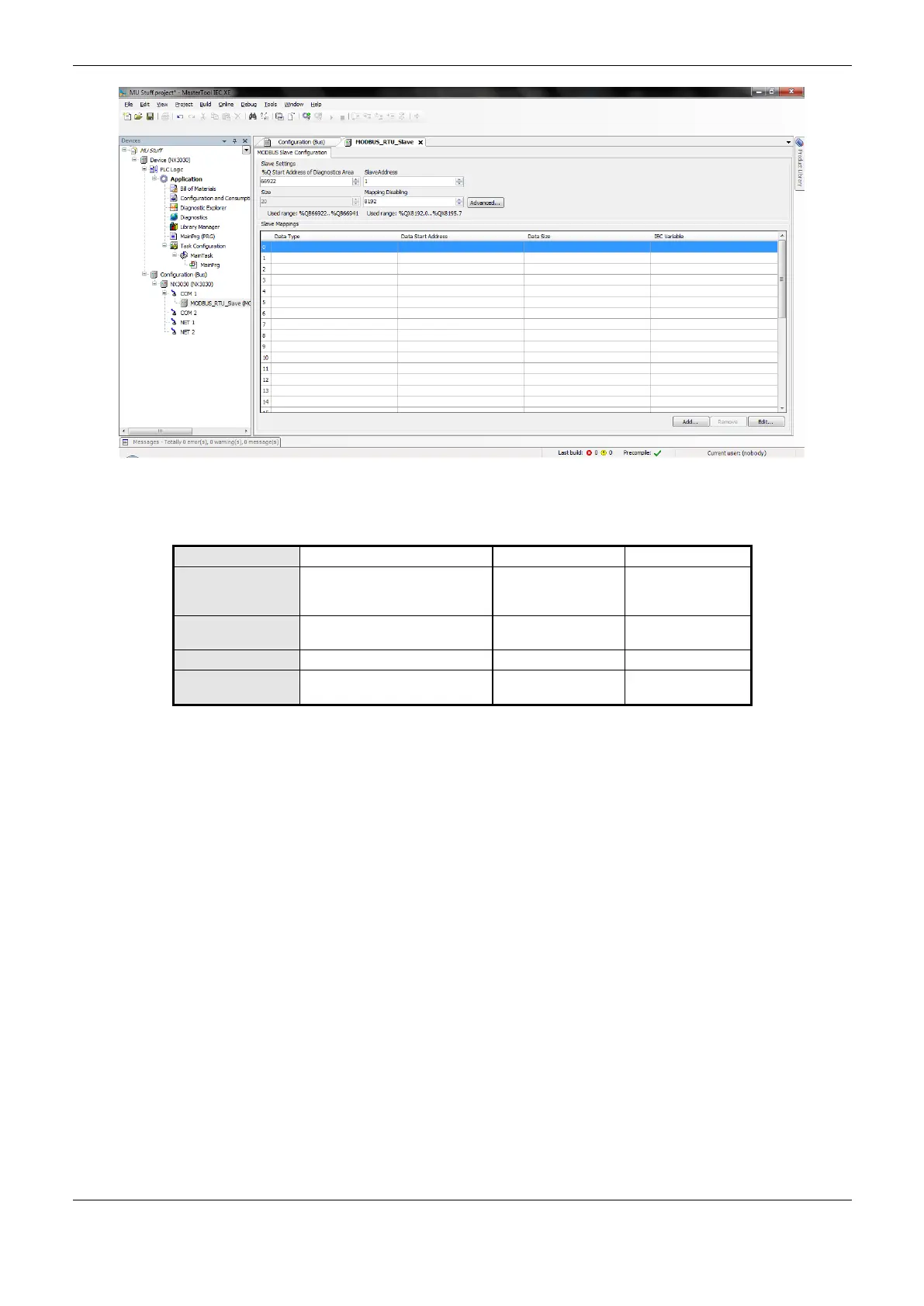4. Configuration
96
Figure 4-25. MODBUS RTU Slave Configuration Screen
Address and direct representation variables (%Q) to control relations and diagnostics:
%Q Start Address
of
DiagnosticsArea
Initial address of the diagnostic
variables
Initial address used to disable
MODBUS relations
Table 4-61. Address and Direct Representation Variables Settings
Notes:
%Q Start Address of DiagnosticsArea: this field is limited by the size of output variables
addressable memory (%Q) of each CPU, which can be found in chapter Technical Description.
Slave Address: it is important to note that the Slave accepts requests broadcast, when the master
sends a command with the address set to zero. Moreover, in accordance with standard MODBUS, the
valid address range for slaves is 1 to 247. The addresses 248 to 255 are reserved.
Mapping Disabling: composed of 32 bits, used to disable, individually, the 32 MODBUS relations
configured in Slave mappings space. The relation is disabled when the corresponding bit is equal to
1, otherwise, the mapping is enabled. This field is limited by the size of output variables addressable
memory (%Q) of each CPU, which can be found on Technical Description chapter.
Default Value: the factory default value cannot be set for the Initial Address of Diagnostics in %Q
and Disabling of Mappings fields, since the creation of a relation can be performed at any time on
application development. The MasterTool IEC XE software itself allocate a value from the range of
direct representation output variables (%Q), still unused.
The MODBUS protocol diagnostics and commands are described in the Table 4-58.
The communication times of the MODBUS Slave protocol, found on the button "Advanced ..." of the
configuration screen, are described in Table 4-57.

